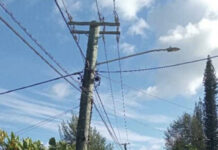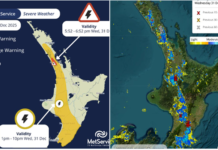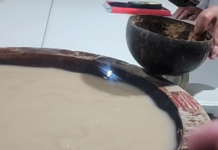Prime Minister ‘Akilisi Pohiva has won the latest round in his long running fight with Tongasat over what he says were illegal payments of Chinese money.
Lord Chief Justice Paulsen ordered that Tongasat and the Kingdom of Tonga clearly state what documents they had relating to the transfer of Chinese money to Princess Pilolevu’s company.
The original case focused on a payment of US$25,450,000 made by the Government of the People’s Republic of China to the Government of Tonga in May 2011 and paid to or for the benefit of Tongasat in around June of that year.
Pohiva argued that the payment to or for Tongasat was unlawful within the meaning of the Public Finance Management Act.
The Prime Minister, who began the case when he was in opposition, and the Public service association want Tongasat and the Kingdom of Tonga to hand over all documents relating to the transfer.
The judge ordered the company to make a full disclosure about what it holds.
He said the Prime Minister and the PSA were entitled to costs.
Tongasat argued that it had an Exclusive Agency Agreement with the Kingdom to market and manage the licensing and frequency assignments of orbital slots registered by the Kingdom with the International Telecommunications Union.
In its submission to the Supreme Court it claimed a dispute had arisen with China Electronic System Engineering Company (CESEC), a corporation associated with the People’s Republic of China (PRC), over its unlawful use of the orbital slot at 130°E.
Tongasat said it concluded on behalf of the Kingdom a settlement with CESEC under which CESEC would pay US$49,900,000 in two tranches of US$24,451,000 on 31 July 2008 and US$25,449,000 on 31 December 2010 and that Tongasat was to receive 50% of the first payment and, subject to further negotiations, ·50% of the second payment.
Tongasat alleged that at the request of CESEC and the Chinese government the money was recorded as aid grant money and not as settlement of the dispute.
This was for reasons of ‘State discretion,’ but in the knowledge that it was really a payment for the unlawful use of the orbital slot.
The judge criticised the satellite company’s defence.
“The logic underlying Tongasat’s statement of defence is sometimes difficult to follow,” he said.
“There are important pieces of the jigsaw missing.”
Hon. Pohiva and the PSA did not win all their arguments in court.
They had asked the court to order that Tongasat be barred from defending the case because it had not paid the costs awarded against it during a previous hearing on the issue.
He described Tongasat’s failure to pay as unacceptable.
“It has provided no explanation for its long standing failure to pay the costs,” he said.
He said there was “some force” in the submission of Hon. Pohiva’s legal team that the failure to pay should be considered contempt of court.
However, Lord Chief Justice Paulsen said he would not rule against Tongasat in this issue but would defer the matter to June 23 so the plaintiffs could explore other ways of obtaining costs.
The main points
- Prime Minister ‘Akilisi Pohiva has won the latest round in his long running fight with Tongasat over what he says were illegal payments of Chinese money.
- Lord Chief Justice Paulsen ordered that Tongasat and the Kingdom of Tonga clearly state what documents they had relating to the transfer of Chinese money to Princess Pilolevu’s company.
- The original case focused on a payment of US$25,450,000 made by the Government of the People’s Republic of China to the Government of Tonga in May 2011 and paid to or for the benefit of Tongasat in around June of that year.
- Pohiva argued that the payment to or for Tongasat was unlawful within the meaning of the Public Finance Management Act.







